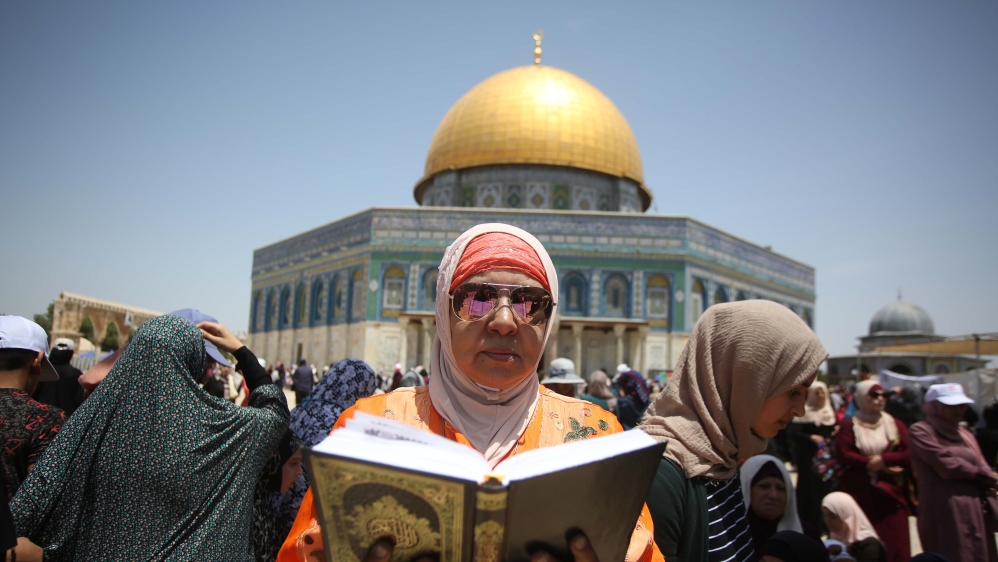Ramadan 2020: Why is it so important for Muslims?
The Muslim holy month is upon us once again, this year with many Muslim-majority nations under coronavirus lockdown.

Ramadan is the holiest month for Muslims. Every year, Muslims around the world fast during daylight hours, but what is it really about?
What is Ramadan?
Ramadan is the ninth month in the Muslim lunar calendar. Healthy adult Muslims fast in Ramadan from dawn until dusk. This includes abstaining from drinking, eating, immoral acts and anger. Other acts of worship such as prayer, reading the Quran and charity are also encouraged during the holy month.
Keep reading
list of 4 itemsMuslim pupil loses UK court bid over Michaela school prayer rituals ban
Photos: Sikhs celebrate harvest festival of Baisakhi, marking new year
Masses gather for Eid celebrations in India
Muslims also believe the Quran was revealed in Ramadan.
During the holy month, Muslims wake up early to eat a pre-dawn meal called suhoor, and they break their fast with a meal referred to as iftar.
It is common for mosques to host large iftars, especially for the poor and needy. Nightly prayers called Tarawih are also held in mosques after iftar.
Different cultures have different traditions during Ramadan, whether it is a special food they must cook, or eating iftar with the extended family. Islamic tenets such as generosity inspired most of these traditions, including sharing food and inviting guests over for iftar.
However, this year Ramadan will most certainly be a less festive time, amid the coronavirus pandemic as all nations, including Muslims ones, take precautions to curb the spread of the virus by banning or limiting social gatherings, and closing mosques.
Saudi Arabia’s grand mufti Sheikh Abdulaziz al-Sheikh, the highest religious authority in the kingdom, asserted that prayers during Ramadan, including nightly Tarawee and Eid al-Fitr prayers, should be performed at home as the pandemic rages on around the world, Saudi newspaper Okaz reported.
When is Ramadan?
Since Ramadan is part of the lunar calendar, its date annually changes on the Gregorian calendar. Muslims tend to wait for the new month’s moon to appear before they announce the first day of Ramadan. However, they can still estimate the day beforehand.
This year Ramadan begins on Friday, April 24 in most Muslim-majority nations.

How long is Ramadan?
Lunar months last between 29 to 30 days depending on when the new moon is sighted. If the moon is not seen on the night of the 29th day, then Ramadan lasts for the full 30 days.
The Eid al-Fitr celebration marks the end of the month when Muslims celebrate a successful Ramadan of fasting and worship
Why do Muslims fast during Ramadan?
Fasting is one of the five pillars of Islam. There is also a verse in the Quran that prescribes fasting for all Muslims who are mature and healthy enough to do so for the full day.
So Muslims fast as an act of worship, a chance to get closer to God, and a way to become more compassionate to those in need.
Fasting is also seen as a way to learn patience and break bad habits.
When does Ramadan end?
This year, Monday, May 22, will be the 29th day of Ramadan for most Muslim nations in the Middle East.
These countries will be on the lookout for the Eid moon that evening. If it is sighted, the first day of Eid al-Fitr will be observed on Sunday, May 23.
Otherwise, Ramadan fasting will carry on for 30 days and Eid al-Fitr will be celebrated on Wednesday, May 24.